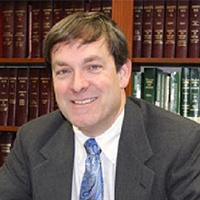 West Newton Estate Lawyers, Massachusetts
West Newton Estate Lawyers, Massachusetts
Sponsored Lawyers
1-10 of 44 matches
Accident & Injury, Estate, Divorce & Family Law, Lawsuit & Dispute
Carl D'Angio graduated from New England School of Law in 1989 near the top of his class concentrating his studies in the areas of real estate and asset management. After passing the bar he spent 3 years in Washington, D.C. with Ross, Dixon, and Masback, one of the Capital’s preeminent insurance defense firms. He worked on multimillion-dollar cases including Columbia Casualty v. Playtex. Since then he has practiced in Waltham, Massachusetts in a varied civil practice. His uncle, Louis D'Angio, practiced law in Waltham for more than fifty years. The family has had roots in Waltham for more than a century. Carl D'Angio has tried numerous cases in state and federal courts before both judges and juries. He has reached success in personal discrimination and employment cases, automobile accidents, product, and premises liability, construction disputes, consumer protection matters, residential and commercial landlord/tenants disputes, adverse possession litigation, and various other real estate disputes and business litigation. He has represented hundreds of people in personal bankruptcy. He's a proud member of NACBA, the National Association of Consumer Bankruptcy Attorneys. He's had cases in virtually all aspects of the Probate Court including probating of wills, administration of estates, divorce, paternity, guardianships, adoptions, will contests, petitions for partition, child support, and abuse protection orders. Atty. D'Angio prides himself on providing vigorous, common sense solutions to problems in the most efficient and affordable manner possible. Atty. D'Angio lives in Westwood with his wife and three children. He is active (president emeritus) with the Waltham Community Foundation, a local charitable organization that provides funds to other local organizations such as the Salvation Army, Boys Club, Hospice, Farmer's Market, Christmas LightingFund, and the Jewish Guild for the Blind.
(more)Accident & Injury, Divorce & Family Law, Estate, Real Estate
Jeff Fraser has a degree in Psychology from Boston College (magna cum laude) and is a graduate of Boston College Law School. He has over thirty years experience in private practice, including all types of personal injury, divorce, wills and estates, real estate, and business law. Mr. Fraser has been awarded the prestigious "AV" rating by Martindale-Hubbell in recognition of his skill and integrity. Mr. Fraser has extensive experience as a mediator in both civil cases and divorce and family cases.
(more)





